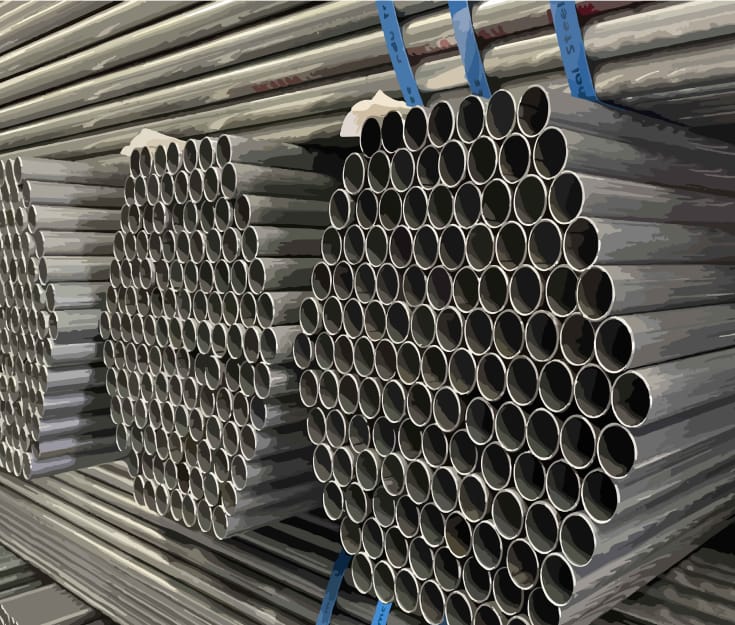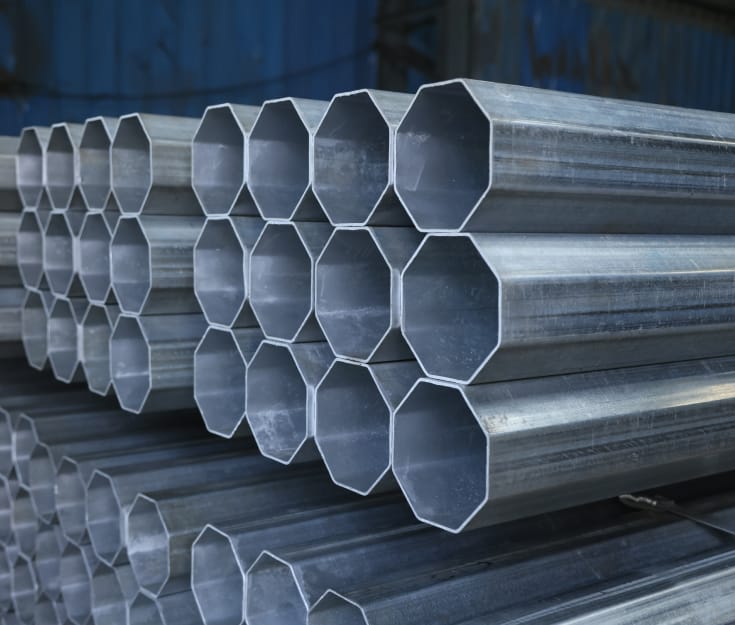In the complex realm of building and plumbing, the choice of materials is critical to any project's success. Diving into the nuances of GP and GI pipe difference is key. These materials, known by their initials, differ in uses and traits, offering various advantages to meet project requirements. This guide delves into the technical aspects of Galvanized Iron (GI) pipes and Galvanized Pipes (GP), providing the knowledge you need for selecting the appropriate pipe type for your construction projects. Insights on durability, application suitability, and cost efficiency will empower you to make choices that align with your project's technical and financial needs. Trusting a reputable GI pipe supplier will further ensure the quality and reliability of your chosen materials.
Understanding the GP and GI Pipe Difference
In the vibrant construction and plumbing sectors, the materials you pick for any project are crucial. Pipes are especially significant, forming the core of plumbing, drainage, and structural frameworks. Among the numerous choices, Galvanized Iron (GI) pipes and Galvanized Pipes (GP) stand out. Knowing the subtle differences between these pipes is essential for construction and plumbing professionals in India to make choices that fit the unique needs of their projects.To further comprehend the suitability of these pipes, let's explore their corrosion resistance and longevity.
Corrosion Resistance and Longevity of GI Pipes
Choosing materials for your projects involves considering the corrosion resistance and lifespan of Galvanized Iron (GI) pipes. The zinc coating on these pipes acts as more than a barrier. It is a sacrificial anode that protects the steel beneath from corrosion. This mechanism ensures that the zinc layer corrodes first, greatly extending the pipe's life. This attribute is invaluable in settings where moisture and corrosive elements are common, making GI pipes a dependable option for maintaining the structural integrity and longevity of your projects.GI pipes can last up to 50 years in moderate environments, significantly reducing the need for frequent replacements. Additionally, their robustness and longevity make them a preferred choice for infrastructure projects that demand high durability and reliability.

Applications of GI and GP Pipes in Construction and Agriculture
GI pipes, protected by a zinc layer, are widely used in water supply systems, ideal for plumbing and irrigation. Their durability and rust resistance ensure a reliable water supply, reducing the need for frequent replacements and maintenance. In the construction sphere, GI pipes provide essential support for buildings and bridges, facing environmental challenges head on.
Although also galvanized, GP pipes are typically thinner, fitting for less intense applications. Their lightness is perfect for agricultural irrigation systems, where installation ease and cost effectiveness matter. Understanding the applications and benefits of each pipe type leads us to consider the cost implications for your project.
Cost Comparison Choosing Between GI and GP Pipes
GI pipes, with their thicker zinc coating, demand a higher upfront cost but are known for their durability and longer lifespan. This coating makes GI pipes highly resistant to corrosion, ideal for projects where longevity and minimal maintenance are crucial. Their long term cost effectiveness comes from their reduced need for replacement and maintenance, making them a financially smart choice despite the higher initial investment.
Conversely, GP pipes are celebrated for their affordability, especially in budget conscious projects. Their lighter weight and thinner zinc coating lower the upfront cost, offering a cost effective option for projects where intense strength and corrosion resistance are not primary concerns. This positions GP pipes as fitting for lightweight structures, fencing, and scaffolding, where material cost efficiency is a priority.
The decision between GI and GP pipes goes beyond initial costs to include overall project expenditures, including maintenance and potential replacement costs. For projects needing robust, corrosion resistant materials to withstand harsh conditions, the upfront investment in GI pipes may be offset by lower long term costs. However, for less demanding applications or significant budget constraints, GP pipes present a viable and economical choice.
Also Read: Maximising Galvanised Pipe Life Expectancy: Your Comprehensive Guide
How to Choose Between GI and GP Pipes for Your Project
When comparing GI and GP pipes for your project, here are key considerations
GI pipes, celebrated for their durability and corrosion resistance, suit projects where these attributes are essential. These pipes withstand rust and corrosion, making them perfect for water supply systems and high moisture or corrosive environments. Their durability and extended lifespan minimize the need for replacements, offering a long term, cost effective solution despite a higher initial cost.
GP pipes, though galvanized, are generally thinner and lighter than GI pipes. Their ease of handling and installation make them a practical choice for projects where these factors are crucial. They are typically used in non structural applications like fencing and handrails, where intense corrosion resistance is not the primary concern.
Making the Right Choice GI vs. GP Pipes for Your Construction Needs
Selecting appropriate materials for your construction or plumbing projects in India significantly impacts the project's outcome and its long-term success. With an in-depth understanding of the distinct advantages and applications of Galvanized Iron (GI) pipes and Galvanized Pipes (GP), you are equipped to choose materials that not only meet but exceed your project's requirements. Whether prioritizing durability and corrosion resistance with GI pipes or seeking cost efficiency and ease of installation with GP pipes, your decision should reflect the specific needs of each project. This careful approach ensures not only the success and integrity of your construction endeavors but also the optimal use of resources. Remember, the materials you select today shape the legacy of your projects tomorrow, emphasizing the importance of informed selection at every step. Trusting reputable Steel pipe manufacturers in Tamil Nadu will further ensure the quality and reliability of your chosen materials.

